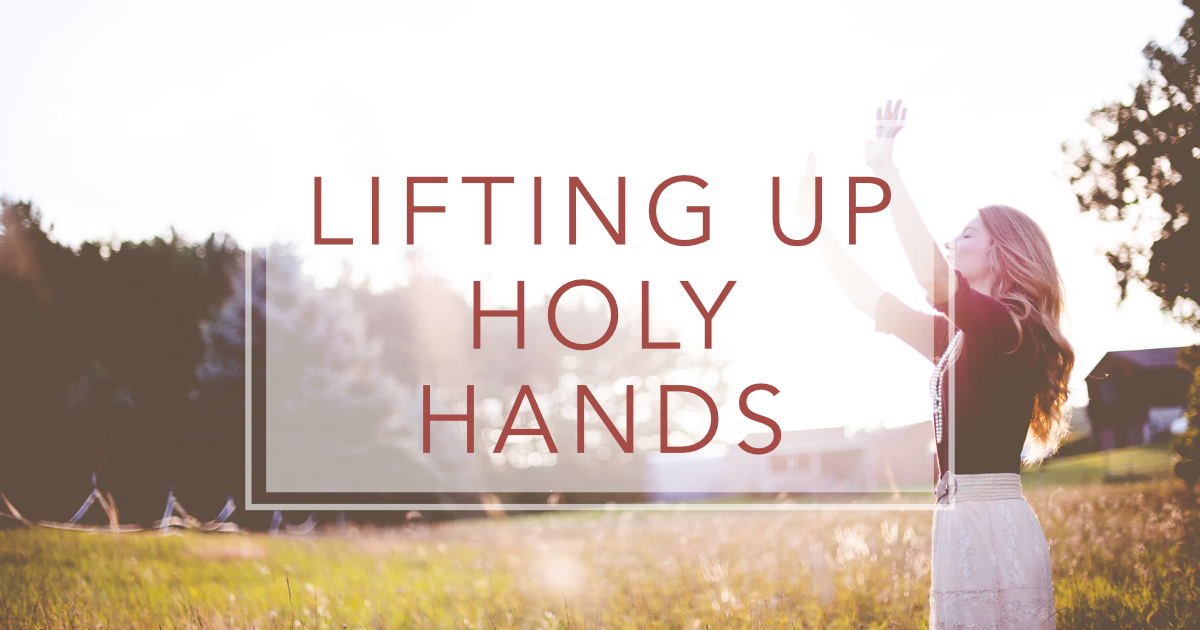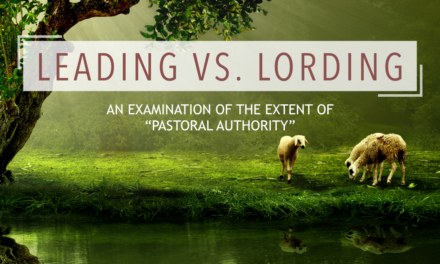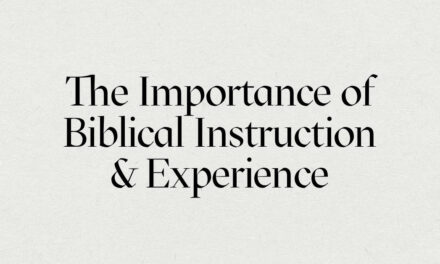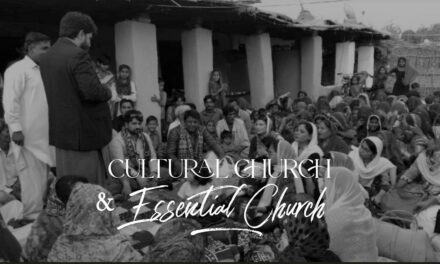In my journey with the Lord there have many times, whether individually or in a corporate gathering, where I have been stirred to raise my hands to God in either prayer or praise. In earlier years if I was in a corporate setting, I either did this during prayer—so no one else would see me—or with my Bible in my hand so it would be considered acceptable in a Baptist setting! But why are we so inhibited? Is this right? Does the Bible speak to this matter?
Recently, I was arrested with an admonition in the Psalms that prompted this study. The inspired Psalmist says, “Lift up your hands in the sanctuary, and bless the Lord” (Ps. 134:2). The idea could be “in the sanctuary [holy place]” or with “holy hands.” The conservative edge of paraphrase words it this way: “Lift up holy hands in prayer, and praise the Lord” (NLT). In the New Testament Paul under inspiration says, “I will that men pray every where, lifting up holy hands” (1 Tim. 2:8).
These two passages urge us, at least at times, to raise our hands to the Lord in prayer or praise. Neither context would limit this to be done only in private. To do this for show would be hypocrisy, but to do this because the Spirit stirs us would be legitimate. While proper consideration should be given to a given cultural context to avoid misunderstanding, care must also be taken to keep from letting the fear of man keep us from obeying the Spirit. In fact the fear of man could be a factor either direction depending on the context. The issue is not style of worship, but whether or not the Holy Spirit is leading.
Scripture provides positive examples of upraised hands in prayer or praise:
- Solomon in his prayer at the dedication of the Temple (1 Kings 8:22, 54; 2 Chron. 6:12, 13)
- God’s people in time of need (1 Kings 8:38; 2 Chron. 6:29)
- Ezra when he prayed after the remnant had sinned (Ezra 9:5)
- The people under the leadership of Ezra and Nehemiah when the Word of God was read (Neh. 8:6)
- In reference to Job (Job 11:13)
- The psalmist in prayer (Ps. 28:2; 88:9; 141:2)
- The psalmist in praise (Ps. 63:4;143:6)
- In repentance (Lam. 3:41).
In some spheres of Christianity, the practice of holding up your hands in prayer or praise is largely looked upon as suspect. Perhaps this is due to overreacting to others who are viewed as extreme. While this viewpoint may at times be legitimate (and at other times may not be), it is sad to miss out on a biblical practice because of an overreaction. When we let overreactions become traditions and let traditions trump the text, we are making a mistake the Pharisees made, and that Jesus condemned (Mark 7:9).
I am not advocating the practice of upraised hands just for the sake of doing it, or for the purpose of immitating others who have this practice. The issue is the Word and the Spirit. It’s encouraged in the Bible, and at times the Spirit prompts you to do so. Several times people have testified to me they felt a deep desire to lift their hands and praise the Lord. If the Spirit is in it, undoubtedly He would bless it. More importantly the Lord would be honored.

John Van Gelderen
Post Author












I have often been moved to lift my hands in praise but felt that my church would frown upon it.
I’ve been tempted to do it in times of prayer also.
I think we are too traditional and too inhibited to do so.
I think we are the worse for it.
Just one mans opinion.
Love this post. Thank you for your biblical approach to life and ministry.
How did they lift up hands in Bible times? What do you do when lifting up your hands? Do you lift them up over your head? Do you wave them around? etc.
Good questions, Don! I’m not sure we really know. Obviously, some may abuse this practice and become a distraction. But apparently since it’s in the text there is a legitimate way to apply this.
John great thoughts this has been on my heart for awhile, I have been move and overwhelmed by God’s Love and Grace during worship and have lifted my hands as an expression of thankfulness and love to God. I find my self lifting my hands in prayer simply as a sign of dependence and need , the older i get the more i realize my inadequacy and the weakness of my own flesh and how nothing can happen apart from God and God Alone.
Well said! It really is an expression of dependence.